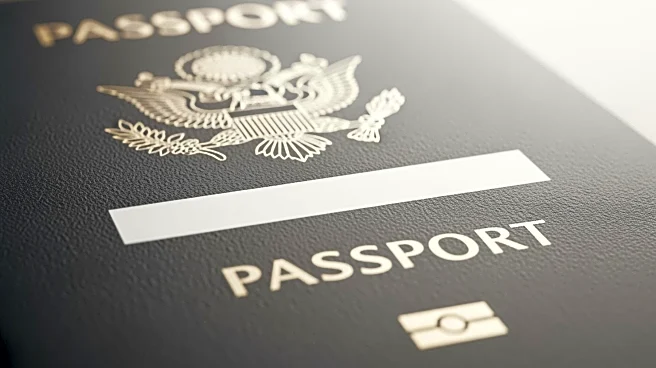What's Happening?
The Supreme Court has utilized its shadow docket to permit the administration of President Trump to enforce a policy requiring transgender individuals to use their birth names, or 'deadnames,' on passports.
This decision overturns 33 years of precedent that allowed transgender people to use their chosen names on official documents. The shadow docket is a process that allows the Court to make decisions without full briefing or oral arguments, often leading to swift and less transparent rulings. This move has sparked significant controversy and debate over the rights of transgender individuals and the use of the shadow docket for impactful decisions.
Why It's Important?
This decision has profound implications for the transgender community, as it affects their ability to travel and be recognized by their chosen identity on official documents. The use of deadnames can be distressing and invalidating for transgender individuals, impacting their mental health and social acceptance. Furthermore, the use of the shadow docket for such a significant policy change raises concerns about judicial transparency and accountability. Critics argue that this method bypasses the usual rigorous scrutiny and debate that accompanies Supreme Court decisions, potentially undermining public trust in the judicial system.
What's Next?
The decision is likely to face legal challenges from advocacy groups and civil rights organizations who argue that it violates the rights of transgender individuals. These groups may seek to overturn the ruling through further litigation or push for legislative changes to protect the rights of transgender people. Additionally, the decision may prompt discussions in Congress about the use of the shadow docket and calls for reforms to ensure greater transparency and accountability in the judicial process.
Beyond the Headlines
The ruling highlights ongoing cultural and legal battles over transgender rights in the United States. It underscores the tension between conservative policies and the push for greater inclusivity and recognition of diverse identities. The decision may also influence public opinion and political discourse surrounding LGBTQ+ rights, potentially affecting future elections and policy-making.










